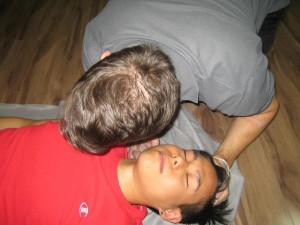Drug overdose happens when an individual takes in more than the daily recommended dosage of a particular drug. Drug overdose does not always occur as a result of the use of illegal drugs, as prescription medications also commonly lead to drug overdose. There are plenty of different drugs available in the market, each with its own pathway, contraindications and daily dosage. Sometimes, the combination of these different drugs is what leads to the undesirable effects.
The commonly overdosed drugs that are medically approved include pain medications (paracetamol, aspirin, etc.), prescribed pain medications (methadone, oxycodone, other opiates), and sedatives (valium). Illegal drugs that are commonly overdose are cocaine and methamphetamine.
https://www.youtube.com/watch?v=gau5ogZ-3jk
Causes of Drug Overdose
Drug overdose is usually classified as either accidental (unplanned) or intentional (planned).
- Accidental (unplanned) Drug Overdose
- Taking a wrong medication
- Taking the wrong doses of the right medication
- Taking more than the daily recommended dosage, unaware that it is already beyond the daily recommended amount
- Taking multiple medications due to perseverance of symptoms
- Common in children to mistake these medications as candies or to ingest them out of curiosity
- Intentional (planned) Drug Overdose
- To commit suicide or cause harm upon self
- To get the “high” feeling or sensation
- To gain attention
Signs and Symptoms of Drug Overdose
The signs and symptoms of drug overdose will vary depending on the drug that is ingested and the amount of drug in the body. Evidently, the higher the amount of drug overdosed in the body, the more dangerous it is. Individuals can be more sensitive to a particular drug, leading to more serious symptoms even at lower dosages. The following are the signs and symptoms of drug overdose:
- Change in vital signs – pulse rate, respiratory rate, blood pressure and temperature
- Chest pain
- Abdominal pain
- Diarrhea that may present with blood
- Nausea and vomiting
- Skin that is either hot and dry or cool and sweaty
- Feeling sleepy
- Dyspnea
- Confusion
- Loss of consciousness
First Aid Management for Drug Overdose
It is important to give first aid to a victim of drug overdose, as it can be lethal. If not given immediate treatment, it may lead to death. The following steps are recommended in cases of drug overdose:

- Check and monitor for circulation, airway and breathing. If necessary, initiate chest compression and/ or CPR.
- Call for emergency medical services if the casualty has ceased breathing or collapses.
- If the casualty is unconscious, assist them to lie on their left side.
- If no signs or symptoms manifest, call Poison Control. They will advise you on what actions you should take next.
- If possible, bring the overdose drug or prescription bottle to the emergency room or give to the medics. This will assist in giving the proper treatment to the victim.
- Do not induce vomiting. Do not give the casualty anything to eat or drink.
Learn how to treat and managed victims of drug overdose by enrolling in First Aid Classes and CPR Training.
Drug overdose is when an individual takes more than the recommended dosage of a particular medication. Drug overdose may be life-threatening if not treated immediately.
